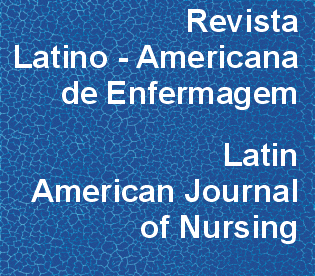Cardiovascular risk assessment in hypertensive patients
DOI:
https://doi.org/10.1590/S0104-11692013000300023Abstract
OBJECTIVE: to assess cardiovascular risk by means of the traditional Framingham score and the version modified through the incorporation of emerging risk factors, such as family history of acute myocardial infarction, metabolic syndrome and chronic kidney disease. METHOD: participants were 50 hypertensive patients under outpatient treatment. The clinical data were collected through a semi-structured interview and the laboratory data from patients' histories. RESULTS: it was verified that the traditional Framingham score was predominantly low (74%), with 14% showing medium risk and 12% high risk. After the inclusion of emerging risk factors, the chance of a coronary event was low in 22% of the cases, medium in 56% and high in 22%. CONCLUSIONS: the comparison between the traditional Framingham risk score and the modified version demonstrated a significant difference in the cardiovascular risk classification, whose correlation shows discreet agreement between the two scales. Lifestyle elements seem to play a determinant role in the increase in cardiovascular risk levels.Downloads
Download data is not yet available.
Downloads
Published
2013-06-01
Issue
Section
Original Articles
License
RLAE’s authorship concept is based on the substantial contribution by each of the individuals listed as authors, mainly in terms of conceiving and planning the research project, collecting or analyzing and interpreting data, writing and critical review. Indication of authors’ names under the article title is limited to six. If more, authors are listed on the online submission form under Acknowledgements. The possibility of including more than six authors will only be examined on multicenter studies, considering the explanations presented by the authors.Including names of authors whose contribution does not fit into the above criteria cannot be justified. Those names can be included in the Acknowledgements section.
Authors are fully responsible for the concepts disseminated in their manuscripts, which do not necessarily reflect the editors’ and editorial board’s opinion.
How to Cite
Paula, E. A. de, Paula, R. B. de, Costa, D. M. N. da, Colugnati, F. A. B., & Paiva, E. P. de. (2013). Cardiovascular risk assessment in hypertensive patients . Revista Latino-Americana De Enfermagem, 21(3), 820-827. https://doi.org/10.1590/S0104-11692013000300023



